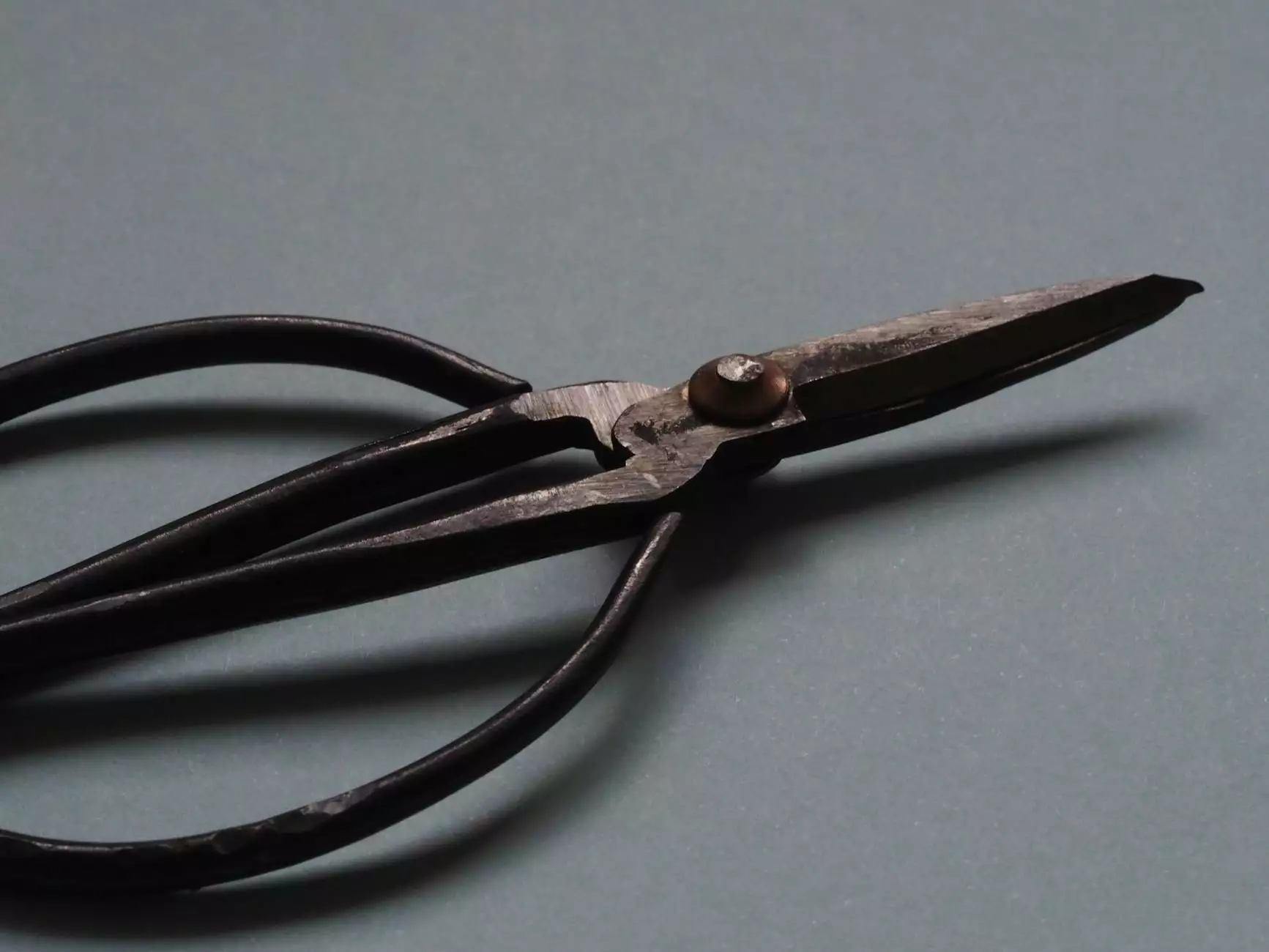The Essential Role of Scissors Instruments in Medical and Health Practices

In the world of healthcare, precision is paramount. Scissors instruments are some of the most fundamental tools in a doctor’s toolkit, serving versatile functions that enhance surgical outcomes and overall patient care. Understanding their significance and application not only showcases their importance but also highlights the evolution and advancements in medical tools over time. In this article, we delve deeper into the various aspects of scissors instruments, exploring their types, uses, and vital role in medical centers.
What are Scissors Instruments?
Scissors instruments are specialized cutting tools used primarily in surgical and medical settings. Unlike typical scissors, these instruments are designed with specific functionalities to facilitate accurate cuts in biological tissues. The precision and design of scissors instruments can significantly affect the surgical process and outcomes.
Types of Scissors Instruments
Scissors instruments come in various shapes and sizes, each tailored to perform specific tasks in health and medical practices. Some of the most common types include:
- Surgical Scissors: Designed for cutting tissues. They can further be classified into different categories like Mayo scissors, Metzenbaum scissors, and dissecting scissors.
- Bandage Scissors: Used to cut bandages and dressings, these scissors often feature one blunt tip to prevent skin injury.
- Suture Scissors: Specifically crafted to cut stitches efficiently without damaging surrounding tissues.
- Throat Scissors: These are specialized for procedures involving the throat, like tonsillectomies.
- Scissors for Fiber Optics: Designed to handle delicate materials in advanced surgical practices utilizing fiber optics.
The Importance of Scissors Instruments in Surgical Procedures
The role of scissors instruments in surgical procedures cannot be overstated. They are crucial for:
- Precision Cutting: The design of surgical scissors allows for accurate cutting, reducing the risk of damage to surrounding tissues.
- Enhanced Efficiency: With the right tool, healthcare practitioners can perform procedures faster and with greater effectiveness.
- Reducing Trauma: Sharp, specialized scissors minimize trauma to the patient's tissues, which can lead to quicker recovery times.
Material and Design of Scissors Instruments
The effectiveness of scissors instruments largely relies on their materials and design. High-quality stainless steel is a standard material due to its durability, resistance to corrosion, and ability to hold a sharp edge. Some instruments also include:
- Scissors with Coating: Coatings like titanium provide additional durability and are chemical resistant, making them ideal for various surgical environments.
- Ergonomic Designs: Advanced designs allow for better hand positioning and grip, reducing fatigue during prolonged use.
Care and Maintenance of Scissors Instruments
Proper care and maintenance of scissors instruments are vital in ensuring their long-term functionality and reliability. Here are key maintenance tips:
- Regular Cleaning: Scissors should be meticulously cleaned after each use to prevent contamination.
- Sharpening: Regular sharpening is necessary to maintain the cutting edge of the scissors.
- Inspection: Routine inspections help identify wear and possible damage, allowing for timely repairs or replacements.
Innovations in Scissors Instruments
The development of scissors instruments has seen numerous innovations, improving their functionality and introducing advanced features. Key innovations include:
- Smart Scissors: Some modern scissors come with integrated sensors that can provide real-time feedback on cutting force and angle.
- Disposable Options: For specific applications, especially in sterile environments, disposable scissors are available to reduce the risk of infection.
- 3D Printed Scissors: With advancements in technology, custom scissors can now be produced using 3D printing, allowing for bespoke solutions tailored to unique surgical needs.
Scissors Instruments in Various Medical Settings
Scissors instruments play a vital role across various medical settings, including:
1. Hospitals
In hospitals, surgical scissors are central to any operating room. They aid in performing a vast array of surgeries, ensuring doctors can operate with precision and care.
2. Clinics
Clinics utilize smaller types of scissors, such as suture scissors and bandage scissors, for routine procedures like wound care and minor surgeries.
3. Specialty Medical Centers
Specialized surgical centers, focusing on particular areas such as orthopedics, ophthalmology, or cardiology, require scissors designed specifically for the unique complexities of each discipline. This specialization enhances surgical accuracy and patient safety.
Case Studies: Success Stories Leveraging Scissors Instruments
Numerous case studies exemplify the efficacy of scissors instruments in providing superior medical care. Here are a few notable examples:
Case Study 1: Cardiac Surgery
In a recent cardiac surgery at a leading medical center, the use of high-precision Metzenbaum scissors allowed the surgeon to make delicate incisions while minimizing tissue disruption. This resulted in a smoother recovery process for the patient.
Case Study 2: Pediatric Surgery
Pediatric specialists often face unique challenges due to smaller anatomical structures. The use of specialized pediatric surgical scissors has proven to enhance surgical outcomes, ensuring that even the tiniest patients receive optimal healthcare.
Conclusion: The Indispensable Role of Scissors Instruments in Healthcare
Scissors instruments are not merely cutting tools; they are essential components of modern medical practice. Their diverse applications across different medical settings, coupled with ongoing innovations, underscore their significance in enhancing surgical precision and patient care. At grey-medical.com, we believe in the importance of quality instruments in the medical field. By investing in high-quality scissors instruments, medical professionals are better equipped to deliver exceptional healthcare outcomes and improve the overall patient experience.









